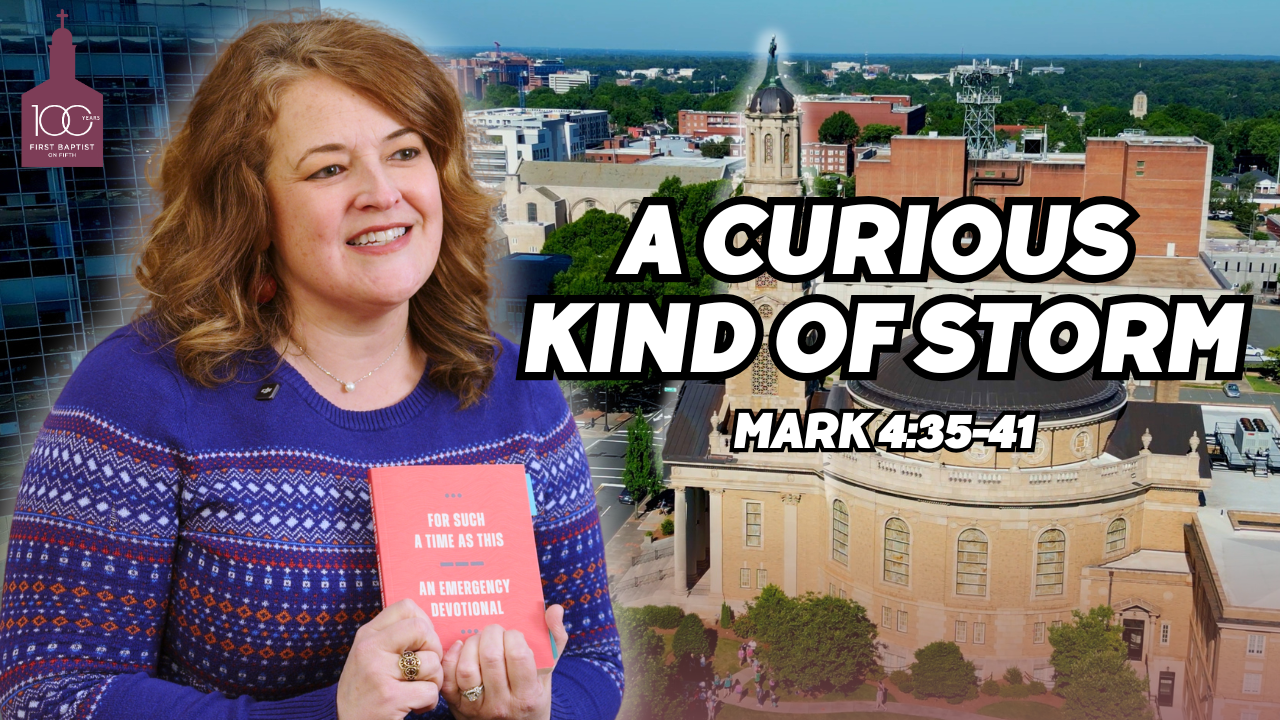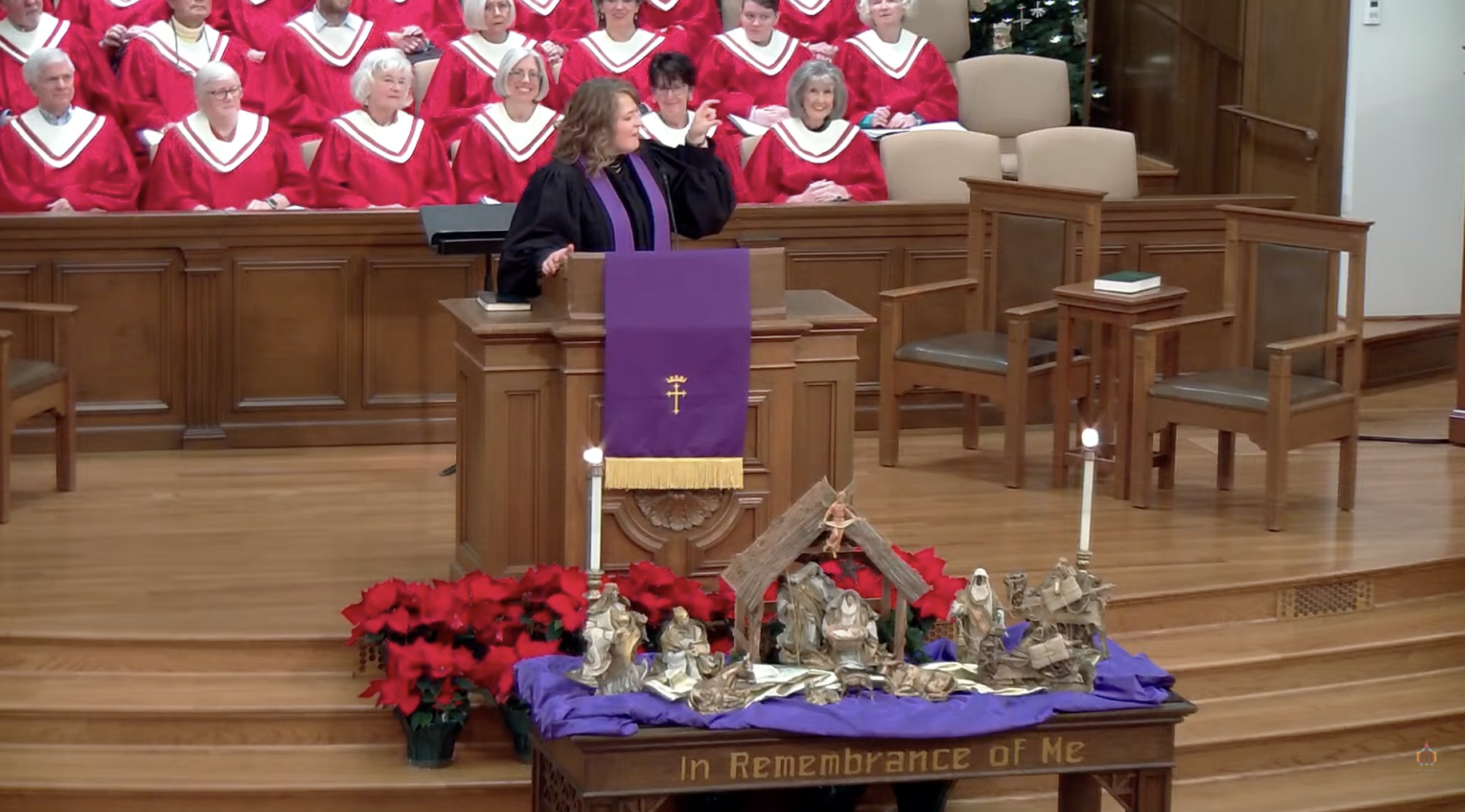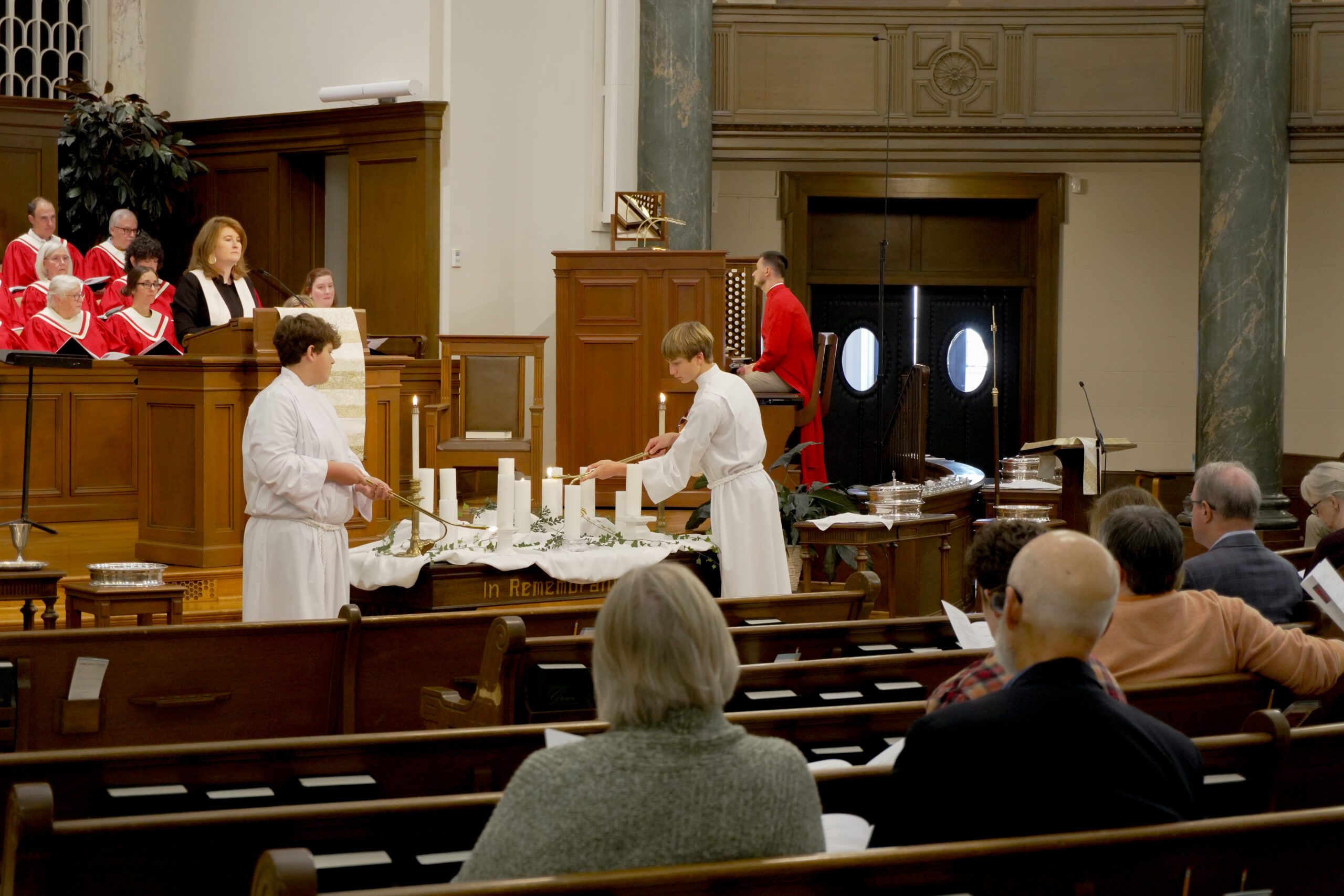I.As the story goes, one day, a man named Abraham invited a stranger to his tent for a meal. When grace was being said, the man began to curse God, declaring he could not even bear to hear God’s name. Seized with indignation and anger and confusion, Abraham drove the man away.
When he was at his prayers that night, God said to Abraham, “this man has cursed and reviled me for fifty years, and yet I have given him food to eat every day. Could you not put up with him for a single meal?”1
II.If you remember from these past weeks in Hebrews, we’ve spent time with the ancestors of the faith. We’ve heard stories of their faithfulness through all the toils and dangers and snares of this world. Indeed, they are part of that great cloud of witnesses cheering us on as we run the race of faith, urging us to ‘keep going’ on the way of life.
Let’s hold this in mind as we turn to chapter 13, which scholars tell us take on a different form called “paraenesis.” Paraenesis was a common literary device that simply means “a list of ethical sayings,” often without a particular connection to each other. But here, love is the framing device. Love in many forms is threaded throughout the passage: philadelphia (the sibling kind of love; 13:1), philoxenia (hospitality to strangers; 13:2), and aphilarguros (not loving money; 13:5).2 But in each, that very first instruction we heard read today resounds loudly. Let mutual love continue. Let mutual love continue permanently, and not be shaken away. Let love remain when all else falls away. And let that remaining love be mutual, reciprocal, etc. Let it not be limited to only those already within the community already, but let it be extended to strangers in true hospitality, “lest you entertain angels unaware.” Or as Brother Jeremiah says, “we always treat guests as angels – just in case.”3
And at the foundation of it all? Jesus Christ, who is the same yesterday, today, and forever. To him, we offer a sacrifice of praise. And through him, we do good and love well.
III.Of all the meaningful encouragements in this passage, I want us to focus today on the first two, with the hypothesis that it is through the practice of hospitality among strangers that mutual love has the vision and fuel to continue.
But first, let me ask: what is a stranger? I bet some of you who grew up in the 80s and 90s are thinking of “stranger danger,” and other fearful assumptions about people we don’t know. So I wonder: is a stranger simply one unknown to you? Puritan leader John Owen once distinguished between different types of strangers, and defined strangers as those “whose circumstances we know not but from themselves.”4 If a stranger is simply someone you don’t yet know, your communities might be overrun with strangers: strangers who share your street, your workplace, your alma mater, your gym, your pew! Networked and connected, though unknown. “Relative strangers,” you might say.
But what of “unknown strangers,” like that story of Abraham and the man who joined him for a meal. Ones who don’t share a zip code, or a skin color, or a stock portfolio, or a dialect with you? I know I don’t have to tell you all the ways that “unknown strangers” are perceived in our current context. Stranger implies strangeness. Other. Different. One to fear. One to displace. One to threaten. One to dehumanize. One to call enemy.
Let mutual love continue?
You don’t have to look far in our scriptures to find connections between mutual love and welcome to strangers. From Genesis when Abraham welcomed angels to Jesus’s words in Matthew, “I was a stranger and you welcomed me,”5 and all the stories and lessons in between, God’s words that speak to us through scripture bind a life of faithful living to a life of love for all people, especially those you might call “stranger.” For as the laws given to the Israelites in the Torah make clear, “when a stranger resides with you in your land, you will not oppress the stranger. They shall be to you as the citizen among you, and you shall love the stranger as yourself, for you were once strangers in this land.”6 You see, this framing isn’t just about the stranger, the one apart from you, the one unknown by you, different from you, living outside the boundaries of your context. It’s about you, it’s about us! For all of us were once strangers in this land!
Think with me about a time when you were the stranger. (Close your eyes if it helps.) What did it feel like to be unmoored, unknown, unseen, even feared? How did that identity of “stranger” or “outsider” inform how you thought about yourself? When you experienced welcome, did it like a salve, a balm to your weary spirit, or did it disquiet you? (You can open your eyes.)
So when the writer of Hebrews says, “do not neglect to show hospitality to strangers,” what’s implied is “for you were once strangers in this land.” Meaning: you know what it feels like to be othered, and you know what it feels like to be welcomed. So be the welcomer!
But it doesn’t stop here. You see, I don’t think our job is just to extend hospitality because we’ve had others do that to us, to welcome because we’ve been welcomed, to love because we’ve been loved. In some ways, that then allows hospitality and welcome and love to happen on our terms, our identity, our territory, our land, our customs, our generosity, our inclusion, our initiative. Rather, we’re to extend hospitality and welcome and love because “we might be entertaining angels unaware!” Meaning: any act of hospitality, received or extended, is an opportunity not for us to host, but for God to host. Not for our terms to be upheld, but for all parties to experience God’s terms. Not for our identity to be extended, but for God’s identity to be revealed. Not for our territory to be the land, but for God to inhabit the territory, and the land, and the customs, and the generosity, and the inclusion. For it is at God’s initiative, not ours.
And that particular alchemy is in the mutuality. In the shared spirit of common discovery and curiosity. In the recognition that God is taking both of us somewhere we’ve never been before, where the winds of the Spirit will delight us in ways we can’t yet imagine.
As a counter image to “hospitality,” Sam Wells calls what I’m describing “guest-ability.” “Guestability,” he describes, “means the grace and receptivity to act generously in other people’s territory. It means setting aside the privileges of being the host and being willing and available to accommodate and adapt, to learn and appreciate.”7 Or, in the words of South African theologian, Allan Boesak, “the pinnacle of lovelessness is not our unwillingness to be a neighbor to someone, but our unwillingness to allow them to be a neighbor to us.”8 Let mutual love continue!
So, friends, even as we practice hospitality, let’s practice guestability too. Even as we practice love, let’s practice mutuality too. Even as we host and welcome and include and open wide the doors, let’s remember that we are the hosted too. You see as Ephesians claims, in Christ, “you are no longer strangers and aliens, but you are citizens with the saints and also members of the household of God.”9 Who knows what God in Christ through the power of the Holy Spirit will do next!
IV.If you have perceived this morning that the room is considerably less cool than normal, it’s because a bunch of our youth are down the street: worshiping with and serving among the congregation at The Dwelling, a partner congregation who primarily serves our downtown neighbors who are unhoused. My guess is that our youth might not have easily-available connections to find with the people they’ll meet. They may not have been to the same school, or lived in the same neighborhood, or listened to the same music. I bet our youth may even feel like the strangers in the room! But in sharing a meal and worshiping together and experiencing the mutuality that comes when God shows up, mutual love will continue.
One month from now, we’ll close down 5th Street and have ourselves a meal as part of our 100th anniversary celebrations. Except it won’t be for us, but rather by us…. or maybe not? A free meal for the neighborhood, modeled on The Longest Table, where neighbors come together to share a meal. Let the record show: this is no membership-generating exercise. Rather, it will be a practice of both hospitality and guestability, which begins, as Christine Pohl said, “at the gate, in the doorway, on the bridges between public and private space.”10
What a lure it would be to want to squish ourselves around every table, delighting in the chance to enjoy a meal on the street right outside our church house. What a temptation it would be to scurry around and spend all our energies making sure things are just right: that the table decorations are whimsical and spirited, that the food is cooked to perfection, that the chairs are comfortable and the vibes are high. What an enticement it would be to think ourselves the host and our neighbors the guests, ourselves the welcomers and our neighbors the strangers.
If we aren’t intentional, we might spin our wheels trying so hard to be hospitable that we forget to be guest-able too. We might fool ourselves, thinking that one meal can be the fullest exercise of our hospitality and overlook the holy possibility of what happens when two or more are gathered and God shows up. But mutual love will continue.
V.David Whyte: “love is contagious and always leads to other forms of love.”11 So friends, consider with me today: what practices of hospitality and guestability are you being summoned to practice? What practices of love are contagious for you that you want to share widely and receive gratefully? What will it take for you to give room to the Spirit to show up?
To Abraham and his stranger/blasphemer dinner partner, to teenagers at The Dwelling, to a church in the streets, to any people anywhere who sit down, stranger to stranger, with a dogged hope that something can be transformed, the cynical among us might wonder, “one meal? What good could that do?”
But for Jesus, who was both host and guest at the table of love, it was one meal that changed everything.




